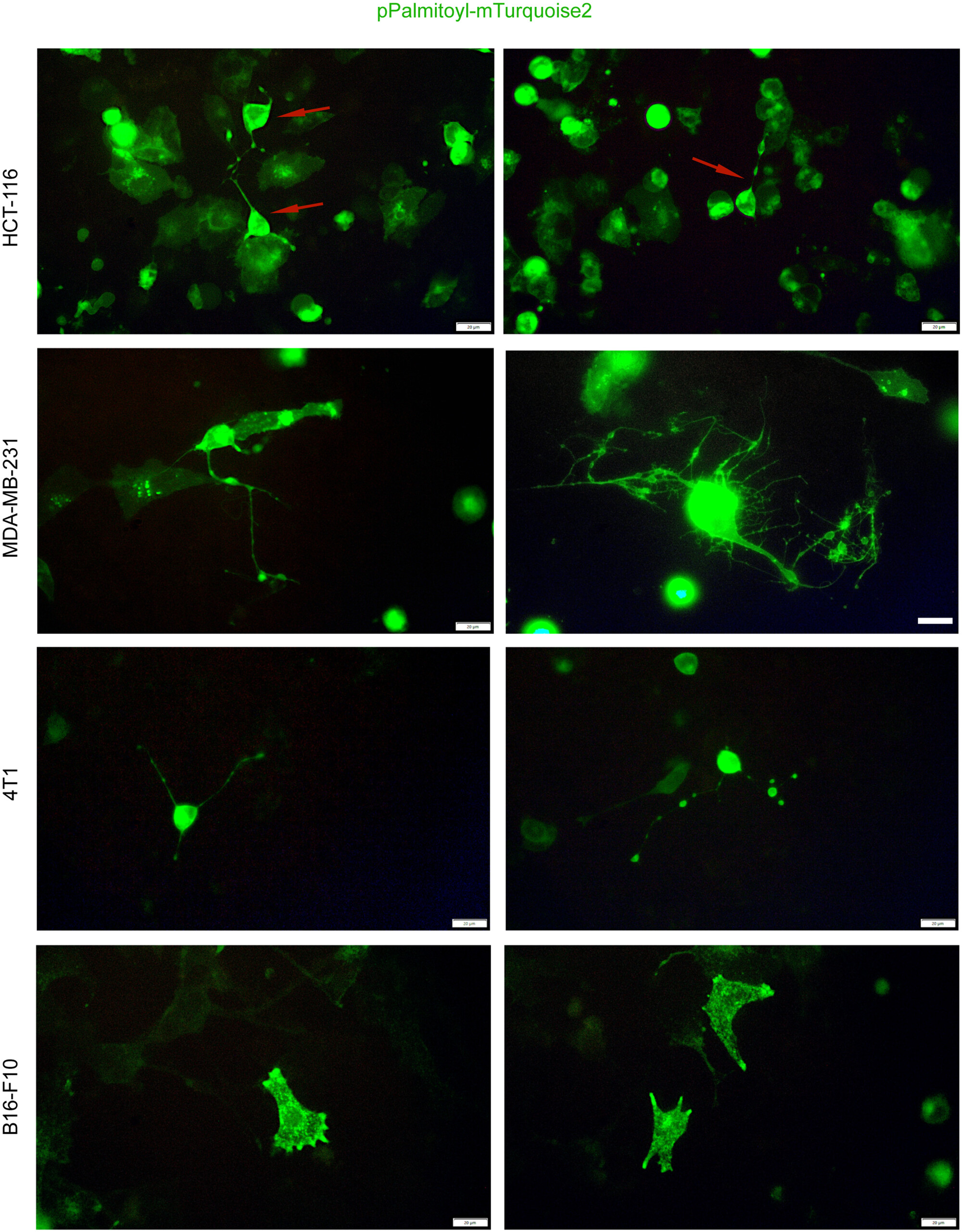MedComm-Oncology | Transpiration of neurological phenomena in cancer: Long-term depression (LTD) abrogates cancer stem cell memory and sensitizes it to metabolic therapy

Open the phone and scan

Visualization of neuronal-like cells in HCT-116, MDA-MB-231, 4T1, and B16-F10 cell lines using transient transfection of pPalmitoyl-mTurquiose2 plasmid (scale bar: 20 µm).
Therapy resistance and recurrence are irrefutably ascribed to the unique attributes of the cancer stem cell (CSC) population. Therefore, discerning the underlying mechanism is imperative in arbitrating a strategic therapeutic approach. In this study, we have observed the coexistence of neuron-like cell (NLC) subpopulations in different cancer cell lines. The NLC subset was further validated by transfection studies and was found to be positive for PSD-95. As a proof of concept, we have also demonstrated the transpiration of neurological phenomena such as long-term potentiation (LTP) and long-term depression (LTD) in cancer. We have utilized PMA drug and IL-13 cytokine to study LTD and LTP, respectively, and observed a correlation between the memory marker (GLUN2B) and stemness markers (CD95 and CD58). Moreover, the transcriptional protein pCREB, which plays a crucial role in memory formation, was found to influence CD44 protein levels. These findings suggest that the instigation of LTD can impair cellular memory and sensitize CSC to the metabolic inhibitor, 3Bromopyruvate. Furthermore, this study interfaces the neurobiology of cancer and nanomedicine, wherein we have used biomimetic nanocarriers for the active targeting of drugs and demonstrate their ability to augment therapeutic efficiency.
Article Access: https://doi.org/10.1002/mog2.71
More about MedComm-Oncology: https://onlinelibrary.wiley.com/journal/27696448
Looking forward to your contributions.


